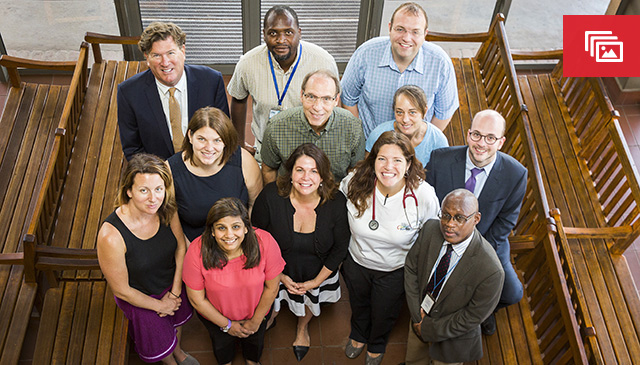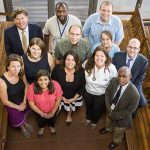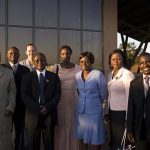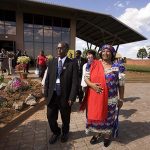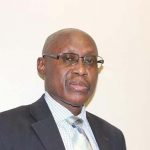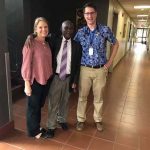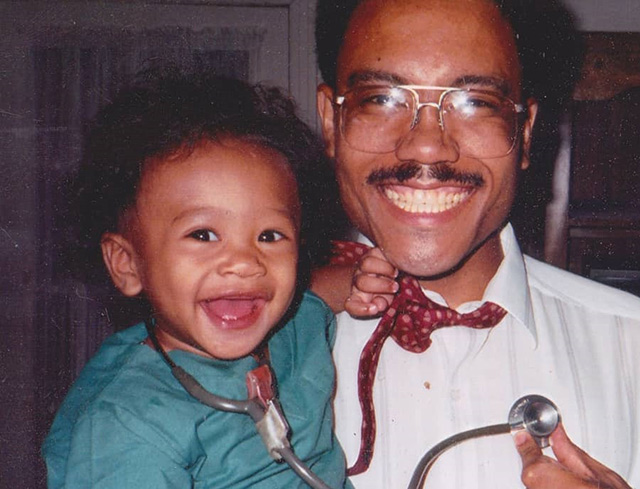
Pediatric Surgeon Dr. Paul Minifee has worked at Texas Children’s for almost three decades. Over the years, one of his primary focuses has become educating and mentoring residents and medical students on rotations in pediatric surgery.
“I have always enjoyed sharing my knowledge and experience with others, especially young people who are early in their medical careers,” Minifee said. “It’s been one of the most fulfilling parts of my career.”
Recently, Minifee got the opportunity to teach and operate with a very special student – his son, Dr. Chris Minifee, a third-year surgical resident at the University of Texas Medical Branch. Chris is spending two and a half months at Texas Children’s on rotation with the Orthopedic Surgery Department.
The day he collaborated with his dad in the operating room he was performing an anterior scoliosis repair with Dr. Brian Smith, Texas Children’s chief of orthopedic surgery. Paul came in at the beginning and the end of the surgery to open and close the patient’s chest. Chris assisted him with the procedure, a common practice for orthopedic surgeons in cases such as the one they were working on.
“I immediately went to the coaching skills I learned in baseball,” Paul said about how he handled guiding his son in the operating room. “They worked back then and they seemed to work that day too.”
Paul said his son did a great job and that he executed his part of the procedure very well. What made him most proud was the positive comments from his colleagues about his son’s work in the operating room that day and on other occasions during his rotation.
“It was truly a joy to be there with him and to hear from others what good work he’s doing for others,” Paul said. He added that the father-son duo was making history that day in that he, the first Black pediatric surgeon trained in Texas and the second to be licensed in the state, was operating with his son, who is one of a small but growing number of Black surgeons in the state and the nation. “We were making history in there,” Paul said. “I’m glad it was at Texas Children’s, a place where I have always felt comfortable, accepted and able to grow in my career.”
Chris said operating with his dad has thus far been the proudest moment of his medical career. The operating lounge they were in after surgery, Chris said, was the same lounge he saw his dad in years ago when he shadowed him during junior college. It was around then that he decided to pursue medicine instead of his first love – baseball.
“I wanted to be a professional baseball player but that didn’t pan out,” Chris said. “I’m glad I had a backup plan (orthopedic medicine) and that I have come to love it as much as or more so than baseball.”
Chris said a lot of what his dad taught him on the ballfield translated over to the classroom and now the OR. Some of those things include team work, persistence, and the desire and drive to be your best.
Throughout his rotation at Texas Children’s and from what he’s seen and heard through his dad over the years, Texas Children’s is a place where people’s best is exhibited across the board. He said that includes diversity among the organization’s workforce.
While operating at Texas Children’s, Chris said, the OR has been filled with people from different ethnicities and walks of life. “You probably didn’t see that 20 years ago, but things have changed, which is refreshing.” he said.





